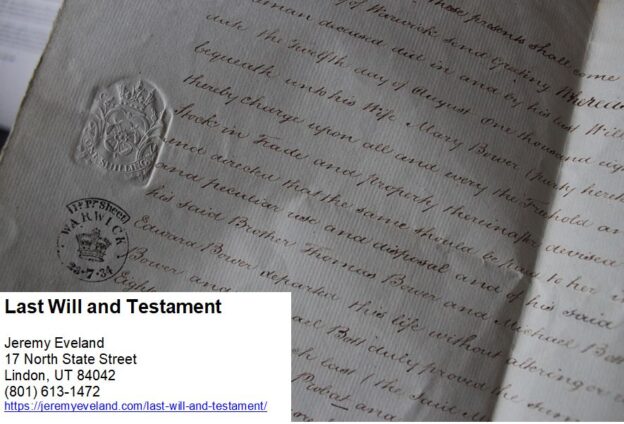Mastering the Art of Overtime Pay Calculation in Utah: A Comprehensive Guide
Introduction
If you’re a Utah resident, chances are you’ve worked some overtime hours at one point or another. And while getting paid extra for putting in more time at work may seem like a no-brainer, calculating overtime pay can be confusing and overwhelming. In Utah, all employers are required to pay their eligible employees one and a half times their regular rate of pay for any hours worked beyond 40 hours per week.
This is in accordance with both federal and state laws that aim to protect employees from being overworked without fair compensation. However, it’s important to note that not all employees are eligible for overtime pay in Utah.
Some may be exempt based on their job duties or salary level. We’ll delve into the specifics of these exemptions later on.
It’s also essential to ensure that you’re calculating overtime pay correctly by including all forms of compensation such as bonuses, commissions, and some fringe benefits. Failing to do so could result in underpayment of wages, which is not only unfair but illegal.
So if you’re feeling daunted by the task of calculating overtime pay in Utah, fear not! By understanding the basics and following some simple steps, you’ll be able to ensure that you receive fair compensation for your hard work.
Understanding Overtime Pay in Utah
Definition of Overtime Pay
Before we dive into how to calculate overtime pay in Utah, let’s first define what it is. Overtime pay, or time and a half, is the extra amount of money an employee receives for working more than 40 hours per week. This means that for every hour worked over 40 hours in a workweek, the employee is entitled to receive one and a half times their regular rate of pay.
Federal and State Laws on Overtime Pay
Both federal and state laws govern overtime pay. The Fair Labor Standards Act (FLSA) sets the minimum wage and establishes rules for overtime pay at the federal level. In addition to federal laws, states can also have their own overtime laws that are more generous than federal regulations.
Utah follows the same general guidelines as set by FLSA, but with some differences. For example, unlike federal law which only considers hours worked in a single workweek when calculating overtime pay, Utah law requires employers to calculate hours worked over two or more weeks if an employee has agreed in writing to a “4/10” work schedule where they work ten hours per day for four days each week.
Who is Eligible for Overtime Pay in Utah?
Not all employees are eligible for overtime pay in Utah. Generally speaking, employees who are paid on a salary basis and earn at least $684 per week ($35,568 annually) are exempt from receiving overtime pay under federal law.
However, there are exceptions to this rule such as certain professionals like doctors or lawyers who are exempt regardless of salary. In addition to exemptions under federal law, there may be additional exemptions under Utah state law as well such as seasonal workers or those employed by small businesses.
It’s important for both employers and employees to familiarize themselves with these exemptions to avoid any confusion or potential violations. Understanding overtime pay in Utah requires knowledge of federal and state laws, as well as who is eligible for it.
Employers should make sure they are following all applicable regulations and properly calculating overtime pay for their employees. Employees should also be aware of their rights to receive overtime pay and the exemptions that may apply to their specific job or industry.
Calculating Overtime Pay in Utah
State and Federal Statutes
Utah Code § 34-30-8
Fair Labor Standards Act (FLSA) overtime provision
Overtime Calculation Methods:
Hourly: Pay time and a half (1.5 times the regular rate) for hours worked in excess of 40 hours per workweek.
Hourly Plus Bonus and/or Commission: Regular rate = Total hours times hourly rate, plus the workweek equivalent of the bonus and/or commission, divided by the total hours in the workweek; then pay half of that regular rate for each overtime hour.
Salary: Regular rate = Salary divided by the number of hours the salary is intended to compensate.
If the regular hours are less than 40: Add regular rate for each hour up to 40, then pay time and a half for hours over 40.
If the regular hours = 40: Pay time and a half for hours over 40.
Exempt from FLSA
The following classes of employees are not entitled to overtime pay in Mississippi (partial list)
Minors under 16
Executive employees
Administrative employees
Professional employees
Outside salespeople
Note: State laws are always subject to change through the passage of new legislation, rulings in the higher courts (including federal decisions), ballot initiatives, and other means. While we strive to provide the most current information available, please consult an attorney or conduct your own legal research to verify the state law(s) you are researching.
No Daily Overtime Limit
Unlike some other states, Utah does not specify a daily limit for hours worked over a certain amount of hours in a single day. However, employers are free to contract with their employees to establish such a daily overtime limit if both parties agree.
Holiday and Vacation Pay in Utah
In general, Utah overtime laws do not require employers to provide holiday, vacation, or sick pay to their employees. However, if an employer establishes a policy that provides these kinds of pay, they must abide by the policy in a non-discriminatory manner.
Regular Rate of Pay Calculation
The first step in calculating overtime pay is to determine an employee’s regular rate of pay. This includes all forms of compensation, such as salaries, hourly wages, bonuses, and commissions.
To calculate the regular rate of pay for an hourly employee, simply divide the total earnings for the workweek by the total number of hours worked during that week. For example, if an employee works 40 hours in a week at a rate of $15 per hour and earns a $50 bonus that week, their regular rate of pay would be $16.25 ($650 / 40 hours).
For salaried employees whose workweek varies in length (such as those who are paid bi-weekly), divide their annual salary by 52 weeks to determine their weekly salary. Then divide that amount by the number of hours they are expected to work each week to get their regular rate of pay.
How to Calculate Overtime Hours Worked
In Utah, non-exempt employees are entitled to overtime pay for any hours worked over 40 in a workweek. To calculate overtime hours worked, simply subtract 40 from the total number of hours worked during the week. For example, if an employee works 47 hours in a week, they have worked seven overtime hours.
Calculating the Overtime Rate of Pay
Once you have determined an employee’s regular rate of pay and how many overtime hours they have worked during a given workweek, you can calculate their overtime pay rate. In Utah, overtime is calculated based on time and a half (1.5 times) the employee’s regular rate of pay for all overtime hours worked. Using our earlier example where an employee works 47 total hours at a regular rate of $15 per hour, their overtime pay rate would be $22.50 per hour ($15 x 1.5).
Therefore, the employee’s total overtime pay for the week would be $157.50 ([7 hours x $22.50] = $157.50). It’s important to note that some employers may offer a higher rate of pay for overtime hours worked (sometimes referred to as double time), but this is not required under Utah state law.
Calculating Overtime Pay for Shift Differentials
For some employees who work non-standard shifts (such as night shifts or weekend shifts), they may receive a shift differential in addition to their regular pay rate. When calculating overtime pay for these employees, the shift differential must also be included in the regular rate of pay calculation. For example, if an employee earns a base pay of $20 per hour and receives a 10% night shift differential, their regular rate of pay during that shift would be $22 per hour ($20 x 1.10).
If they work 45 hours during that week (including five hours of overtime), their total earnings for the week would be calculated as follows: – Regular earnings: 40 hours x $22/hour = $880
– Overtime earnings: 5 hours x ($22 x 1.5) = $165 – Total weekly earnings: $880 + $165 = $1045
Calculating overtime pay in Utah can seem overwhelming at first glance, but it’s important to ensure your employees are receiving fair compensation for their hard work. By following these guidelines and carefully calculating each employee’s regular rate of pay and overtime hours worked, you can avoid costly mistakes and ensure compliance with state labor laws.
Exceptions to Overtime Pay in Utah
While most employees in Utah are entitled to overtime pay, there are a few exceptions. Understanding these exceptions is important for both employers and employees. Here are some of the most common exemptions from overtime pay:
Salary exemption: Employees who earn a salary may be exempt from overtime pay if they meet certain criteria. Specifically, they must earn at least $684 per week (as of 2021) and perform primarily executive, administrative, or professional duties.
Commissioned employees: Employees who earn commissions as their primary form of compensation may be exempt from overtime pay if they meet certain criteria. Specifically, their total earnings must exceed one and a half times the minimum wage for every hour worked during the workweek.
Overtime-exempt industries: Some industries are exempt from state and federal overtime laws due to the nature of their work. Examples include truck drivers and seasonal amusement park workers.
It’s important to note that just because an employee falls into one of these categories doesn’t automatically mean they’re exempt from overtime pay. Employers should consult with an employment lawyer or the Utah Labor Commission to ensure that they’re following the laws correctly.
Exemptions from Receiving Overtime Pay
In addition to exemptions based on job duties or industry, there are also specific situations where employees may be exempt from receiving overtime pay. Here are some examples:
Bonuses: Certain types of bonuses aren’t included in an employee’s regular rate of pay when calculating overtime. For example, discretionary bonuses given as a gift rather than as compensation for work performed may not count towards an employee’s regular rate of pay.
Paid time off: Paid time off (PTO) isn’t considered hours worked for purposes of calculating overtime pay. This means that if an employee takes PTO during a workweek, that time doesn’t count towards their total hours worked for overtime calculation purposes.
Meals and lodging: If an employer provides meals or lodging to an employee as part of their job, the value of those benefits may not count towards the employee’s regular rate of pay. As with exemptions based on job duties or industry, it’s important for employers to carefully review the rules around these exemptions and ensure that they’re following them correctly.
Alternative Workweek Schedules
Under Utah law, employers are allowed to implement alternative workweek schedules that differ from the standard 8-hour day or 40-hour week. Instead, they can offer employees schedules that exceed eight hours per day without incurring overtime pay as long as certain criteria are met.
To qualify for this exemption, employees must vote in favor of the alternative schedule by a two-thirds majority. Additionally, employees must still receive at least one day off per week and must not work more than 10 hours per day without receiving overtime pay.
Implementing an alternative workweek schedule can be a great way for employers to provide flexibility for their employees while still complying with overtime laws. However, it’s important to carefully follow all rules and regulations surrounding these types of schedules to avoid any potential legal issues down the road.
Common Mistakes to Avoid When Calculating Overtime Pay in Utah
Misclassifying Employees as Exempt
One of the most common mistakes employers make when calculating overtime pay is misclassifying employees as exempt. In Utah, exemptions include executive, administrative and professional employees, outside salespeople, certain computer professionals and highly compensated employees.
To be considered exempt under these categories, an employee must meet specific criteria established by federal and state law. Employers who mistakenly classify non-exempt employees as exempt risk lawsuits and penalties for failure to pay overtime wages.
To avoid this mistake, employers should carefully review the job duties of each employee to determine whether they meet the requirements for exemption. Additionally, employers should stay up-to-date on changes in federal and state wage laws that may impact employee classifications.
Failing to Include all Forms of Compensation When Calculating Regular Rate of Pay
Another common mistake when calculating overtime pay is failing to include all forms of compensation when determining an employee’s regular rate of pay. Under federal and state law, an employee’s regular rate of pay must include all forms of compensation including bonuses, commissions, and some forms of incentive pay.
For example, if an employer offers a bonus or commission in addition to regular wages, that amount needs to be factored into the regular rate calculation used for determining overtime pay. Failure to account for these types of payments can result in underpayment or non-payment of overtime wages.
To avoid this mistake employers should ensure they are properly tracking all forms of compensation paid to their employees including bonuses and commissions. Employers may need to consult with legal counsel or a qualified payroll professional if they are unsure about how specific types of compensation should be included in the regular rate calculation.
Conclusion
Calculating overtime pay can be complicated but avoiding common mistakes can help keep employers out of legal trouble and ensure employees are properly compensated for their work. Employers should carefully review their payroll practices to ensure they are following both federal and state overtime laws, including properly calculating an employee’s regular rate of pay, properly tracking overtime hours worked, and correctly classifying employees as exempt or non-exempt.
By taking the time to understand the law and correct any mistakes in their payroll practices, employers can establish a culture of fairness and compliance within their organization. In turn, employees will be more likely to feel valued and motivated to work hard knowing they are being paid fairly for their time.
Conclusion
Understanding how to calculate overtime pay in Utah is essential for both employers and employees. By following the state and federal laws, calculating the regular rate of pay, and correctly identifying exemptions, both parties can avoid legal issues and disputes.
It is crucial to remember that eligible employees should receive one and a half times their regular rate of pay for hours worked over 40 in a workweek. Employers who fail to comply with these regulations may face penalties or lawsuits.
When calculating overtime pay in Utah, it is important to include all forms of compensation such as bonuses, commissions, and paid time off. Misclassifying employees as exempt from receiving overtime pay could result in legal consequences.
Alternative workweek schedules can provide flexibility for both employers and employees while still complying with regulations. However, it is essential to ensure that these schedules meet all requirements set by the state of Utah.
Overall, it is vital for employers to understand their responsibilities when it comes to paying overtime in Utah. By doing so correctly, they can maintain a positive relationship with their employees while avoiding legal issues.
Likewise, employees should educate themselves about their rights regarding overtime pay so that they receive what they are entitled to. Properly calculating overtime pay in Utah requires attention to detail but ultimately benefits everyone involved by providing clarity and fairness in compensation practices.
Areas We Serve
We serve individuals and businesses in the following locations:
Salt Lake City Utah
West Valley City Utah
Provo Utah
West Jordan Utah
Orem Utah
Sandy Utah
Ogden Utah
St. George Utah
Layton Utah
South Jordan Utah
Lehi Utah
Millcreek Utah
Taylorsville Utah
Logan Utah
Murray Utah
Draper Utah
Bountiful Utah
Riverton Utah
Herriman Utah
Spanish Fork Utah
Roy Utah
Pleasant Grove Utah
Kearns Utah
Tooele Utah
Cottonwood Heights Utah
Midvale Utah
Springville Utah
Eagle Mountain Utah
Cedar City Utah
Kaysville Utah
Clearfield Utah
Holladay Utah
American Fork Utah
Syracuse Utah
Saratoga Springs Utah
Magna Utah
Washington Utah
South Salt Lake Utah
Farmington Utah
Clinton Utah
North Salt Lake Utah
Payson Utah
North Ogden Utah
Brigham City Utah
Highland Utah
Centerville Utah
Hurricane Utah
South Ogden Utah
Heber Utah
West Haven Utah
Bluffdale Utah
Santaquin Utah
Smithfield Utah
Woods Cross Utah
Grantsville Utah
Lindon Utah
North Logan Utah
West Point Utah
Vernal Utah
Alpine Utah
Cedar Hills Utah
Pleasant View Utah
Mapleton Utah
Stansbury Par Utah
Washington Terrace Utah
Riverdale Utah
Hooper Utah
Tremonton Utah
Ivins Utah
Park City Utah
Price Utah
Hyrum Utah
Summit Park Utah
Salem Utah
Richfield Utah
Santa Clara Utah
Providence Utah
South Weber Utah
Vineyard Utah
Ephraim Utah
Roosevelt Utah
Farr West Utah
Plain City Utah
Nibley Utah
Enoch Utah
Harrisville Utah
Snyderville Utah
Fruit Heights Utah
Nephi Utah
White City Utah
West Bountiful Utah
Sunset Utah
Moab Utah
Midway Utah
Perry Utah
Kanab Utah
Hyde Park Utah
Silver Summit Utah
La Verkin Utah
Morgan Utah
How to Calculate Overtime Pay in Utah Consultation
When you need help with How to Calculate Overtime Pay in Utah call Jeremy D. Eveland, MBA, JD (801) 613-1472 for a consultation.
Jeremy Eveland
17 North State Street
Lindon UT 84042
(801) 613-1472
Related Posts
Impact of Environmental Regulations on Business Law Compliance
Business Lawyer South Jordan Utah
Business Lawyer Millcreek Utah
Business Lawyer Taylorsville Utah
How Artificial Intelligence is Shaping the Future of Business Law
Estate Planning is Crucial for People of All Income Levels
Navigating Legal Challenges in Business Succession Planning
Business Lawyer Bountiful Utah
How To Structure A Merger Or Acquisition In Utah
How To Hire Employees Legally in Utah
10 Tips for Negotiating Lease Agreements
Business Lawyer Spanish Fork Utah
How To Start A Non-Profit In Utah
What are the Trademark Laws in Utah

























